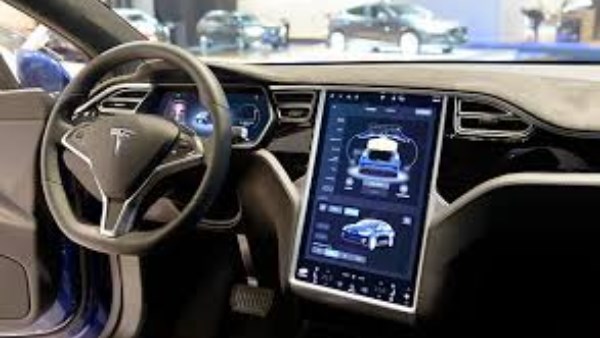
The vehicles will use four of Xpeng's self-developed "Turing" AI chips
Chinese EV maker Xpeng to launch robotaxis, humanoid robots with self-developed AI chips

Chinese electric car company Xpeng plans to launch robotaxis next year after previously claiming it wouldn't be a real business in the near future and took the wraps off of its latest humanoid robot model.
Xpeng's technology push mirrors one of its key rivals Tesla, as the Guangzhou, China-headquartered company looks to position itself as more than just an electric car firm.
The automaker announced on Wednesday as part of its "AI Day" that it is launching three robotaxi models. The vehicles will use four of Xpeng's self-developed "Turing" AI chips. Xpeng claims the chips represent the combined highest in-car computing power in the world, at 3,000 TOPS, an industry measure.
The semiconductors power Xpeng's "vision-language-action (VLA)" model, now in its second iteration. This type of AI models take into account inputs like visual cues that can help with applications like driverless cars or robotics.
Alibaba announced Wednesday that it is partnering with Xpeng on robotaxis through the e-commerce company's digital mapping subsidiary AutoNavi and Amaps app, which also includes a ride-hailing portal.
The Xpeng robotaxi includes an external display of speed and other information on the vehicle's sun visors.
Xpeng said it plans to start testing robotaxis in Guangzhou and other Chinese cities next year.
Co-president Brian Gu told CNBC last week that robotaxis will "ultimately be a global phenomenon" but that it would take time to get there, especially given regulation. Back in April 2024, he cautioned that self-driving taxis wouldn't become a significant business for at least five years.
During a group interview with reporters on Wednesday, Gu addressed his change in tone from last year toward robotaxis.
"The tech is happening faster than we anticipated," Gu said.
He noted that the AI developments and the significant increase in computing power "give us the confidence we are near the inflection point" for robotaxis.
Xpeng's strategy for robotaxis is to make two categories of cars: one for commercial self-driving shared vehicles, and another for fully autonomous personal cars that may be only shared among family members.
Xpeng's robotaxi announcements come as Chinese players such as Pony.ai, WeRide and Baidu have ramped up global expansion plans after rolling out self-driving taxis to the public in parts of China. Tesla this year launched its long-awaited robotaxi program in parts of Texas.





-1120252475029447.jpg)












